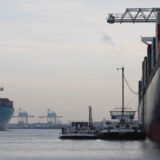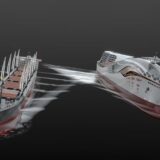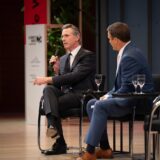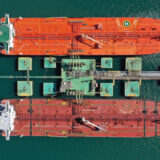
IMO advances toward a net-zero framework for maritime emissions
The International Maritime Organization (IMO) has made significant progress in developing a framework for achieving net-zero greenhouse gas (GHG) emissions from international shipping. At the eighty-first session of the Maritime Environment Protection Committee (MEPC 81) in London, an illustration of a possible draft outline for an “IMO net-zero framework” was agreed upon, marking a crucial step in the legal process toward adopting global regulations.
The proposed framework will encompass regulations under the International Convention for the Prevention of Pollution from Ships (MARPOL), introducing a new global fuel standard and pricing mechanism for maritime GHG emissions. Key elements include a goal-based marine fuel standard for phased reduction of GHG intensity and an economic mechanism to incentivise the transition to net-zero.
IMO Secretary-General Mr. Arsenio Dominguez highlighted the importance of the committee’s progress, stating, “Your Committee is indeed a forum to consider issues of critical relevance for all parts of the marine environment, and this week you made very important progress.”
The draft outline serves as a starting point to consolidate various proposals into a common structure, with further discussions expected to refine and potentially amend the framework as deliberations progress.
MEPC also agreed on several next steps ahead of its next meeting (MEPC 82), including finalising a comprehensive impact assessment on the proposed mid-term measures, holding an expert workshop to discuss preliminary findings, and developing draft terms of reference for a Fifth IMO GHG Study.
Additionally, MEPC adopted revised guidelines on the life cycle GHG intensity of marine fuels (LCA Guidelines) and approved the establishment of two new Emission Control Areas (ECAs) in Canadian Arctic Waters and the Norwegian Sea. The committee also endorsed a draft action plan for reducing underwater noise from commercial shipping and approved interim guidance on various environmental issues.
The advancements made at MEPC 81 are crucial in the global effort to decarbonise the shipping industry and align with the IMO’s target of achieving net-zero emissions by 2050.














